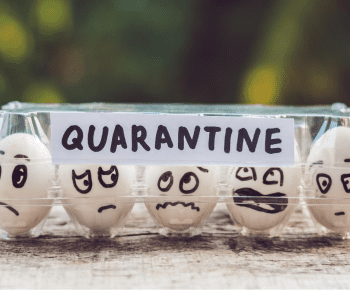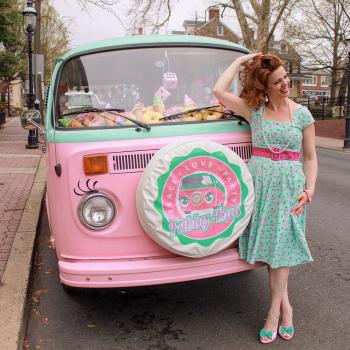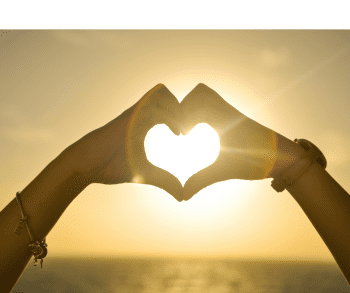For many of us in the U.S., this marks more than six months that we have been in quarantine. I refer to it as ‘self solituding’ and the experience has been both terrifying and comforting. In mid-March, as the buds were beautifully blossoming, I was turning inward, attempting to wrap my mind around the possibility that I would be on my own for a few weeks. I live alone, being able to work from here
offering telehealth sessions as a psychotherapist, have all of the accouterment to survive comfortably in my home. My dining room table has become my desk; my living room has transformed into my makeshift gym. When I contemplated not seeing family or friends, co-workers, or clients for what I imagined would be a short period of time, I told myself I would adjust. I had no clue that it would stretch out to several months with no end in sight. As a confirmed people person, and consummate hugger, the idea of not touching another human being for an indefinite length of time was inconceivable. Because I have developed solid resiliency skills, I conceived a plan to
manage these unexpected circumstances that included:
Daily exercise
Focusing on my clients’ needs, providing a safe haven for them
Writing articles that express feelings around the ongoing crises as they unfolded
Venturing outside to walk in my neighborhood or sit on my deck, soaking up the sun
Talking to neighbors over the back fence, on our respective lawns or driveways
Visiting with my son, daughter-in-law, and infant grandson, taking the necessary precautions
Watching comedies (Mom, The Goldbergs, M*A*S*H, and Golden Girls) that are distractions
Speaking with family and friends via phone, Facetime or on-line
Enjoying live streams of concerts that help me lively up myself
Dancing
Yoga
Attending to personal hygiene when it might be easier to let that slide since almost no one sees me
Eating healthfully
Limiting viewing the news
Refraining from counting cases and deaths; rather, focusing on recoveries
When I do go out, I wear a mask and instead of considering it an imposition, I see it as a necessary health tool which is as important as the medications I take for a cardiac condition. In addition, it is part of a social contract that I have symbolically signed to ‘do no harm’ and
care about the wellbeing of others.
Crying when I am moved to do so.
Prayer, which I refer to as ‘God-versations,’ in which I focus on wellbeing for myself and all those I know and love and all those they know and love and so on…until it encompasses the world
Reading articles and listening to podcasts and Facebook Lives that are informative, from reliable sources, that have an encouraging message
Learning to refrain from impulsively going out to the supermarket if I have a craving for something as I would have prior to this
Keeping my space organized and relatively tidy, since it helps me to think more clearly
Attending and leading workshops and gatherings on Zoom
Offering nurturing touch with self-massage, using wonderfully aromatic lotion, and hugging myself
Hugging trees when I can
Adapting these habits to your needs and lifestyle may help you as well. You may have other interests and hobbies that I encourage you to use to lift your spirits. A few months ago, state governments began to allow for opening up of public and commercial spaces. The announcement brought both cheers and fears. Understandably, owners of businesses whose doors were shuttered for months were relieved that income could flow again. Furloughed or laid-off workers could return to their jobs. Trepidation arose since, although
numbers of cases have dropped in various regions of the country, they have risen in others.
The United States has become the worst-affected country, with more than 3.9 million diagnosed cases and at least 143,701 deaths. A vast dichotomy of behaviors exists in response to the resuming of commerce. They range from people who still prefer to remain in seclusion and would rather not venture out, to those who cautiously dip their big toes into the water, mask and hand sanitizer at the ready, to those who go barefaced out into the world, as if the virus was no longer a concern.
Those three ‘realities,’ have psychological as well as the physical impact. In addition to decreasing or increasing health risks, they also speak to the need people have for both connection and safety. I consider the stories shared by my clients. When consulting with colleagues, they observe the same dynamics. Many with pre-existing anxiety feel safer in their own environs and are in no hurry to emerge.
Conversely, some with that diagnosis, are experiencing cabin fever and are eager to go back to pre-COVID routines. Some who work from home are content to do that indefinitely since it is a far shorter commute and they can dress casually.
Young clients (ranging in age from 5-teens) are keen on reuniting with friends. Some have been physically distanced while visiting with peers.
As school has completed for students, parents are tasked with finding home camp activities for their children to keep them occupied if their previously scheduled programs are closed.
College-age clients are wavering back and forth between excitement and trepidation, wondering what it will be like to go to classes masked and sitting a distance from classmates. Most express gratitude that their schools are opening.
Some families are cautiously planning road trips.
I have heard clients express that they aren’t sure how they will interact with others that they pass in public if they have rarely left home over the past few months.
Many of us are grieving the loss of loved ones, jobs, security, and freedom. This will continue long after the doors open.
They are also becoming increasingly aware of what they have learned about themselves and their priorities. I have asked them, “Who will you be when this is over?” For many, their faith has strengthened, their relationships solidified.
They have come to more deeply appreciate partners who have made their current situation more palatable. One measure of the strength of a relationship is if this person is someone you willingly be with in quarantine.
Dr. Harris Cohen, a primary care physician has been offering information, reassurance, and a dash of
humor via his weekly Facebook Live events and twice-weekly blogs.
He suggested this acronym-
WHIMSY
for life in the time of COVID-19.
WH = Wash Hands
IM = Indoor Masks (also outdoor in crowds)
SY = Socially distance Yourself
In case you feel like Rip Van Winkle who has emerged from deep sleep into a paradigm that no
longer exists, welcome to the ‘now normal’!


